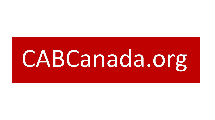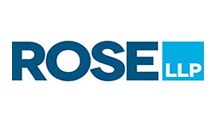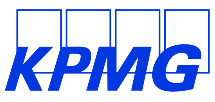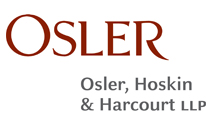ADR is an acronym for Alternative Dispute Resolution or, more recently, Appropriate Dispute Resolution and is used to describe a range of techniques outside the traditional litigation process (though they may be used in tandem with it). ADR procedures are chosen by parties in conflict to try to resolve the dispute in a less adversarial way. These techniques are usually voluntarily and confidential (with some exceptions).
ADR practitioners include negotiators, mediators, arbitrators, facilitators, restorative practitioners, coaches, collaborative lawyers, workplace investigators and assessors, etc., all of whom are neutral third parties.
ADR procedures range from self-help processes at one end of a continuum to binding arbitration at the other. Except for arbitration, ADR uses non-binding processes that parties can walk away from at any time. Parties remain in control of the process and the outcome.
The most common processes are negotiation, mediation and group facilitation. In recent years collaborative family law, restorative justice, conflict management coaching and workplace investigations have steadily emerged as other commonly-used techniques.
ADR processes that are more adjudicative in nature include arbitration, executive mini-trial, settlement conferences, and early neutral evaluation.
As part of a formal ADR process, or informally, negotiation reportedly settles 90-95% of cases long before they get to trial. An increasing number of agreements now require parties to negotiate before litigating. In these agreements, litigation can only proceed after a good-faith attempt to negotiate a settlement. Parties that negotiate at the beginning of a dispute are usually successful, and their costs are usually much lower than with litigation.
Mediation is a process in which the parties agree to an impartial facilitator (a neutral third party) to assist them to reach a voluntary settlement of the issues in dispute. The mediator does not make a decision, and the parties may terminate the process at any time. Mediation is generally voluntary, confidential and unbiased. Where a voluntary settlement is achieved, it only becomes binding when the parties sign a formal settlement agreement. Parties in mediation may still seek independent legal advice (in legal cases the parties are encouraged to do so).
Mediation may be used in a variety of contexts besides those which are court-connected or otherwise part of a legal intervention. Examples of other contexts include interpersonal disputes in private and public sector organizations/workplaces, conflicts within religious and educational institutions, for wills and estates issues and matters with respect to planning for elders, patient complaints against medical, dental, and allied professionals, wrongful dismissal, personal injury and other insurance-related cases, landlord-tenant and neighbourhood conflicts, disputes among working groups (i.e. Boards), customer complaints, and so on.
Joy Noonan LL.B., LL.M., C.Med explains: What is mediation?
Mediation saves cost and time. The main reasons people choose mediation include:
- to preserve relationships
- it is a straightforward and relatively informal process
- it ensures confidentiality (with some exceptions)
- it gives the parties control of the outcome
- it tends to leave parties with a high level of satisfaction
- it can be arranged quickly
- it is expedient
- there are cost savings
- it can be done online
This is a process in which an impartial facilitator leads and manages discussions with a group of people on issues that impact them. Group facilitators support and help group members engage in constructive dialogue to be able to problem-solve, manage conflict, plan strategy, and make decisions. This may be in private or public sector workplaces, for Boards, and other groups.
Facilitators do not express opinions and have no authority to make decisions.
Restorative justice is a reparative approach to dispute resolution that focuses on the needs of the victims and the offenders. This process often involves families and the community when a crime or other offense has been committed that has had an impact not only on an individual but others. That is, instead of relying on legal principles or punishing the offender, this process contemplates the needs of those who have been aggrieved and others who have been effected.
In this process victims and others have a voice to express the impact of the offenders’ actions. Furthermore, offenders are encouraged to take responsibility for their actions. This may be by apologizing, returning stolen money, working for the community or otherwise repairing the harm they caused. Restorative justice is also meant to help offenders avoid future wrongdoing.
Collaborative law is a voluntary process in which each party retains a specially-trained lawyer to collaborate together in joint meetings to negotiate resolution of the issues in dispute without the underlying threat of contested litigation.
In collaborative family law the parties are the separated or divorcing couple who want to settle the range of matters regarding the ending of their relationship – in a conciliatory forum – together and with the support and counsel of their lawyers. Coaches and others may be involved to assist with communications and matters relating to children, finances, etc.
If issues do not settle using this methodology, the parties are required to retain different counsel for litigation purposes.
Collaborative law may be used in other contexts besides family law, though it is most commonly applied, to date, in disputes of this nature.
Conflict management coaching, also known as conflict coaching, is a one-on-one process in which a trained coach helps individuals gain increased competence and confidence to independently manage their interpersonal disputes or to engage in ADR processes designed to assist them, i.e. mediation. In either case, conflict management coaching is a goal-oriented and future-focused process that concentrates on assisting individual clients to reach their specific conflict management objectives.
Goals may be:
- To increase aspects of one’s conflict competence to be able to better engage in and manage interpersonal disputes.
- To explore what, if anything, to do about a dispute that has already occurred.
- To consider the most appropriate strategies, choices, and solutions regarding a conflict that is currently in progress.
- To consider how to proactively approach a situation to prevent an unnecessary dispute.
- To prepare for a one-on-one interaction, for example, a performance review, disciplinary conversation or other situation that is expected to be fractious.
- To prepare to present a topic to a group that is likely to bring about adverse reactions.
- To talk out thoughts and feelings about a difficult situation.
- To prepare for mediation or another process such as negotiation, mediation, arbitration, trial, grievance, collaborative law or group facilitation.
Coaching is also a mechanism used by self-represented litigants to participate in legal processes.
Some ADR professionals conduct investigations to assess a complaint or the conflict dynamics that exist in the workplace. They establish the facts and recommend what may be needed to address the dissension and to prevent conflict from escalating.
Many organizations are building ADR into their business models because they have realized that traditional methods of resolving workplace conflicts are not always the most effective or satisfactory. As a result, a field known as “ADR Systems Design” or Integrated/Informal Conflict Management Systems (ICMS), emerged.
ADR Systems Design is a discipline that analyzes an organization’s needs and sets up systems to manage potential conflict using appropriate dispute resolution processes. ADR systems designers collaborate with management, in-house counsel, human resources, management, employees and customers to structure effective resolution processes in various areas of the business. The result is tailored ADR processes such as preventative mechanisms for situations when problems are likely to emerge, and once they have evolved into disputes.
Arbitration involves adjudication by a third-party neutral. While it is possible to structure arbitration to be non-binding, most arbitration proceedings are designed to be binding.
Arbitration will in most instances come about by agreement of the parties, either due to a pre-existing contract or based on the specific terms of an arbitration agreement entered into after the dispute has arisen. Unless otherwise agreed, the terms of the applicable Arbitration Act will govern and the decision of the arbitrator, unless otherwise agreed, will be binding.
A mediator helps parties negotiate a settlement that will satisfy all the parties. A mediator does not decide a dispute.
An arbitrator functions more like a judge, deciding the outcome of a dispute based on evidence and law presented in an arbitration. Arbitration is binding, and the outcome can be enforced like a court order. Parties must agree to arbitrate and must sign an arbitration agreement.
Arbitration can be as expensive and as time consuming as litigation, but doesn’t have to be. Parties and their lawyers can reduce costs by agreeing to limit documents and discoveries, and by giving the arbitrator the power to make the process more efficient. Costs are lower if the arbitrator writes an appropriate arbitration agreement and conducts the process differently than in a litigation. Eliminating the right to appeal can also give parties a faster and less expensive arbitration.
Med-Arb is a hybrid approach which combines the benefits of both mediation and arbitration. In this process, parties first attempt to reach an agreement with the help of a mediator. If the issues remain unresolved or the mediation comes to an impasse, the parties may move on to arbitration. If qualified as an arbitrator, the mediator can assume the new role and make a binding decision quickly as all the facts are already known, or the mediator can hand over the case to an arbitrator.
An executive mini trial is not really a trial—it’s a negotiation where each party summarizes the dispute before senior executives from each side who aren’t directly involved in the dispute. The parties may choose to have a neutral third party facilitate. The goal is for the parties to reach an agreement by focusing on the business issues.
Early neutral evaluation is when a person experienced in the subject matter of a dispute (an evaluator) holds a meeting to hear the key elements of each party’s case. The evaluator identifies the main issues and explores settlement options. The evaluator also assesses the merits of each party’s case. If the parties cannot reach a settlement, the evaluator may recommend steps they can take to streamline litigation.
In the past, lawyers were sometimes concerned that ADR threatened their litigation earnings. However, clients have always wanted to reduce litigation costs. Lawyers have responded to this reality by training in ADR and setting up ADR sections within their firms. There will always be disputes, and law firms that help clients resolve disputes early and cost effectively are likely to attract, retain, and satisfy clients.
No. Most ADR processes are used on a voluntary basis and are suitable only to the extent the parties are willing to participate in them in good faith.
For cases when there has been sexual harassment, violence, and other forms of abuse and power imbalances, mediation is not considered suitable, and in domestic violence situations special screening procedures are used.
Within the legal context, there are cases in which ADR will not be the desire of one or more of the parties. Examples of such cases are:
- where the parties wish to set a precedent
- the parties want a formal judicial ruling on an existing point of law
- where a court order is required to enforce a judgment
- evidentiary processes are required to protect a party’s rights
- where extraordinary court relief is sought, such as a declaratory judgment
If a case is not suitable for ADR early in the dispute, it may still be appropriate at other points in the process.
For court-connected matters many courts are increasingly requiring mandatory mediation within specified timelines. The use of ADR is also on the increase across the country when legal issues are in dispute but a lawsuit has not yet been initiated.
If, for any reason, ADR is not initially thought to be appropriate, it can still be considered as circumstances change and at each milestone in the litigation, for example:
- when proceedings close
- when documents are created
- when discoveries are made
- setting down for trial
- when the witness is prepared for trial
ADR’s high success rates suggest that parties should use ADR first and litigate only when there are sound reasons to justify it.
Sometimes lawyers and clients are reluctant to propose negotiating to the other side, based on the “first to blink” principle, believing that it might show weakness to their opponent. The consequence is that firms commit to costly litigation when they have a more direct solution available. One way around this conflict-focused model is to make negotiation a mandatory part of the process.
Companies and law firms can sanction ADR as a tool to respond to a dispute by:
- adopting corporate policies that require negotiation, mediation, or arbitration before litigation.
- structuring agreements to include ADR components.
- signing pledges such as the corporate policy statement of the CPR Institute for Dispute Resolution, which agrees to use ADR approaches to dispute where they suit the circumstances.
Call us for more information on what you and your organisation can do to prevent and manage disputes.
ADR practitioners are not regulated by government, so the ADR Institute of Canada has developed its own standards, a Code of Ethics, a Code of Conduct for Mediators and a Complaints/Discipline procedure. In addition to a specific minimum level of training, members must abide by these codes.
Members may go further and apply for ADRIC’s professional designations: the Qualified Mediator or Qualified Arbitrator at an intermediate level, or the senior designations: Chartered Mediator or Chartered Arbitrator. These designations are the best way to gauge an ADR practitioner’s level of skill and experience with the knowledge that their performance has been reviewed and assessed by a committee of senior and respected practitioners.
ADR CONNECT is ADRIC’s online search engine where you can select services and criteria and be provided with a list of ADR professionals to meet your specific needs.
First of all, not all arbitrators and mediators receive salaries. Many are self employed and set their fees on an hourly or daily basis. There may be differences in the fees charged, but it would be based mostly on experience and the area of practice (family, commercial, etc) rather than type of service (arbitration or mediation).
Most practitioners are independent, sole practitioners. Some are employed by government and some, but not many are employed by other organizations. Many continue to work in other areas and do not “quit their day jobs” until they are established. This usually requires a great deal of networking and marketing before one could expect to rely on it as a main source of income.
ADR is an acronym for Alternative Dispute Resolution or, more recently, Appropriate Dispute Resolution and is used to describe a range of techniques outside the traditional litigation process (though they may be used in tandem with it). ADR procedures are chosen by parties in conflict to try to resolve the dispute in a less adversarial way. These techniques are usually voluntarily and confidential (with some exceptions).
ADR practitioners include negotiators, mediators, arbitrators, facilitators, restorative practitioners, coaches, collaborative lawyers, workplace investigators and assessors, etc., all of whom are neutral third parties.
ADR procedures range from self-help processes at one end of a continuum to binding arbitration at the other. Except for arbitration, ADR uses non-binding processes that parties can walk away from at any time. Parties remain in control of the process and the outcome.
The most common processes are negotiation, mediation and group facilitation. In recent years collaborative family law, restorative justice, conflict management coaching and workplace investigations have steadily emerged as other commonly-used techniques.
ADR processes that are more adjudicative in nature include arbitration, executive mini-trial, settlement conferences, and early neutral evaluation.
As part of a formal ADR process, or informally, negotiation reportedly settles 90-95% of cases long before they get to trial. An increasing number of agreements now require parties to negotiate before litigating. In these agreements, litigation can only proceed after a good-faith attempt to negotiate a settlement. Parties that negotiate at the beginning of a dispute are usually successful, and their costs are usually much lower than with litigation.
Mediation is a process in which the parties agree to an impartial facilitator (a neutral third party) to assist them to reach a voluntary settlement of the issues in dispute. The mediator does not make a decision, and the parties may terminate the process at any time. Mediation is generally voluntary, confidential and unbiased. Where a voluntary settlement is achieved, it only becomes binding when the parties sign a formal settlement agreement. Parties in mediation may still seek independent legal advice (in legal cases the parties are encouraged to do so).
Mediation may be used in a variety of contexts besides those which are court-connected or otherwise part of a legal intervention. Examples of other contexts include interpersonal disputes in private and public sector organizations/workplaces, conflicts within religious and educational institutions, for wills and estates issues and matters with respect to planning for elders, patient complaints against medical, dental, and allied professionals, wrongful dismissal, personal injury and other insurance-related cases, landlord-tenant and neighbourhood conflicts, disputes among working groups (i.e. Boards), customer complaints, and so on.
Joy Noonan LL.B., LL.M., C.Med explains: What is mediation?
Mediation saves cost and time. The main reasons people choose mediation include:
- to preserve relationships
- it is a straightforward and relatively informal process
- it ensures confidentiality (with some exceptions)
- it gives the parties control of the outcome
- it tends to leave parties with a high level of satisfaction
- it can be arranged quickly
- it is expedient
- there are cost savings
- it can be done online
This is a process in which an impartial facilitator leads and manages discussions with a group of people on issues that impact them. Group facilitators support and help group members engage in constructive dialogue to be able to problem-solve, manage conflict, plan strategy, and make decisions. This may be in private or public sector workplaces, for Boards, and other groups.
Facilitators do not express opinions and have no authority to make decisions.
Restorative justice is a reparative approach to dispute resolution that focuses on the needs of the victims and the offenders. This process often involves families and the community when a crime or other offense has been committed that has had an impact not only on an individual but others. That is, instead of relying on legal principles or punishing the offender, this process contemplates the needs of those who have been aggrieved and others who have been effected.
In this process victims and others have a voice to express the impact of the offenders’ actions. Furthermore, offenders are encouraged to take responsibility for their actions. This may be by apologizing, returning stolen money, working for the community or otherwise repairing the harm they caused. Restorative justice is also meant to help offenders avoid future wrongdoing.
Collaborative law is a voluntary process in which each party retains a specially-trained lawyer to collaborate together in joint meetings to negotiate resolution of the issues in dispute without the underlying threat of contested litigation.
In collaborative family law the parties are the separated or divorcing couple who want to settle the range of matters regarding the ending of their relationship – in a conciliatory forum – together and with the support and counsel of their lawyers. Coaches and others may be involved to assist with communications and matters relating to children, finances, etc.
If issues do not settle using this methodology, the parties are required to retain different counsel for litigation purposes.
Collaborative law may be used in other contexts besides family law, though it is most commonly applied, to date, in disputes of this nature.
Conflict management coaching, also known as conflict coaching, is a one-on-one process in which a trained coach helps individuals gain increased competence and confidence to independently manage their interpersonal disputes or to engage in ADR processes designed to assist them, i.e. mediation. In either case, conflict management coaching is a goal-oriented and future-focused process that concentrates on assisting individual clients to reach their specific conflict management objectives.
Goals may be:
- To increase aspects of one’s conflict competence to be able to better engage in and manage interpersonal disputes.
- To explore what, if anything, to do about a dispute that has already occurred.
- To consider the most appropriate strategies, choices, and solutions regarding a conflict that is currently in progress.
- To consider how to proactively approach a situation to prevent an unnecessary dispute.
- To prepare for a one-on-one interaction, for example, a performance review, disciplinary conversation or other situation that is expected to be fractious.
- To prepare to present a topic to a group that is likely to bring about adverse reactions.
- To talk out thoughts and feelings about a difficult situation.
- To prepare for mediation or another process such as negotiation, mediation, arbitration, trial, grievance, collaborative law or group facilitation.
Coaching is also a mechanism used by self-represented litigants to participate in legal processes.
Some ADR professionals conduct investigations to assess a complaint or the conflict dynamics that exist in the workplace. They establish the facts and recommend what may be needed to address the dissension and to prevent conflict from escalating.
Many organizations are building ADR into their business models because they have realized that traditional methods of resolving workplace conflicts are not always the most effective or satisfactory. As a result, a field known as “ADR Systems Design” or Integrated/Informal Conflict Management Systems (ICMS), emerged.
ADR Systems Design is a discipline that analyzes an organization’s needs and sets up systems to manage potential conflict using appropriate dispute resolution processes. ADR systems designers collaborate with management, in-house counsel, human resources, management, employees and customers to structure effective resolution processes in various areas of the business. The result is tailored ADR processes such as preventative mechanisms for situations when problems are likely to emerge, and once they have evolved into disputes.
Arbitration involves adjudication by a third-party neutral. While it is possible to structure arbitration to be non-binding, most arbitration proceedings are designed to be binding.
Arbitration will in most instances come about by agreement of the parties, either due to a pre-existing contract or based on the specific terms of an arbitration agreement entered into after the dispute has arisen. Unless otherwise agreed, the terms of the applicable Arbitration Act will govern and the decision of the arbitrator, unless otherwise agreed, will be binding.
A mediator helps parties negotiate a settlement that will satisfy all the parties. A mediator does not decide a dispute.
An arbitrator functions more like a judge, deciding the outcome of a dispute based on evidence and law presented in an arbitration. Arbitration is binding, and the outcome can be enforced like a court order. Parties must agree to arbitrate and must sign an arbitration agreement.
Arbitration can be as expensive and as time consuming as litigation, but doesn’t have to be. Parties and their lawyers can reduce costs by agreeing to limit documents and discoveries, and by giving the arbitrator the power to make the process more efficient. Costs are lower if the arbitrator writes an appropriate arbitration agreement and conducts the process differently than in a litigation. Eliminating the right to appeal can also give parties a faster and less expensive arbitration.
Med-Arb is a hybrid approach which combines the benefits of both mediation and arbitration. In this process, parties first attempt to reach an agreement with the help of a mediator. If the issues remain unresolved or the mediation comes to an impasse, the parties may move on to arbitration. If qualified as an arbitrator, the mediator can assume the new role and make a binding decision quickly as all the facts are already known, or the mediator can hand over the case to an arbitrator.
An executive mini trial is not really a trial—it’s a negotiation where each party summarizes the dispute before senior executives from each side who aren’t directly involved in the dispute. The parties may choose to have a neutral third party facilitate. The goal is for the parties to reach an agreement by focusing on the business issues.
Early neutral evaluation is when a person experienced in the subject matter of a dispute (an evaluator) holds a meeting to hear the key elements of each party’s case. The evaluator identifies the main issues and explores settlement options. The evaluator also assesses the merits of each party’s case. If the parties cannot reach a settlement, the evaluator may recommend steps they can take to streamline litigation.
In the past, lawyers were sometimes concerned that ADR threatened their litigation earnings. However, clients have always wanted to reduce litigation costs. Lawyers have responded to this reality by training in ADR and setting up ADR sections within their firms. There will always be disputes, and law firms that help clients resolve disputes early and cost effectively are likely to attract, retain, and satisfy clients.
No. Most ADR processes are used on a voluntary basis and are suitable only to the extent the parties are willing to participate in them in good faith.
For cases when there has been sexual harassment, violence, and other forms of abuse and power imbalances, mediation is not considered suitable, and in domestic violence situations special screening procedures are used.
Within the legal context, there are cases in which ADR will not be the desire of one or more of the parties. Examples of such cases are:
- where the parties wish to set a precedent
- the parties want a formal judicial ruling on an existing point of law
- where a court order is required to enforce a judgment
- evidentiary processes are required to protect a party’s rights
- where extraordinary court relief is sought, such as a declaratory judgment
If a case is not suitable for ADR early in the dispute, it may still be appropriate at other points in the process.
For court-connected matters many courts are increasingly requiring mandatory mediation within specified timelines. The use of ADR is also on the increase across the country when legal issues are in dispute but a lawsuit has not yet been initiated.
If, for any reason, ADR is not initially thought to be appropriate, it can still be considered as circumstances change and at each milestone in the litigation, for example:
- when proceedings close
- when documents are created
- when discoveries are made
- setting down for trial
- when the witness is prepared for trial
ADR’s high success rates suggest that parties should use ADR first and litigate only when there are sound reasons to justify it.
Sometimes lawyers and clients are reluctant to propose negotiating to the other side, based on the “first to blink” principle, believing that it might show weakness to their opponent. The consequence is that firms commit to costly litigation when they have a more direct solution available. One way around this conflict-focused model is to make negotiation a mandatory part of the process.
Companies and law firms can sanction ADR as a tool to respond to a dispute by:
- adopting corporate policies that require negotiation, mediation, or arbitration before litigation.
- structuring agreements to include ADR components.
- signing pledges such as the corporate policy statement of the CPR Institute for Dispute Resolution, which agrees to use ADR approaches to dispute where they suit the circumstances.
Call us for more information on what you and your organisation can do to prevent and manage disputes.
ADR practitioners are not regulated by government, so the ADR Institute of Canada has developed its own standards, a Code of Ethics, a Code of Conduct for Mediators and a Complaints/Discipline procedure. In addition to a specific minimum level of training, members must abide by these codes.
Members may go further and apply for ADRIC’s professional designations: the Qualified Mediator or Qualified Arbitrator at an intermediate level, or the senior designations: Chartered Mediator or Chartered Arbitrator. These designations are the best way to gauge an ADR practitioner’s level of skill and experience with the knowledge that their performance has been reviewed and assessed by a committee of senior and respected practitioners.
ADR CONNECT is ADRIC’s online search engine where you can select services and criteria and be provided with a list of ADR professionals to meet your specific needs.
First of all, not all arbitrators and mediators receive salaries. Many are self employed and set their fees on an hourly or daily basis. There may be differences in the fees charged, but it would be based mostly on experience and the area of practice (family, commercial, etc) rather than type of service (arbitration or mediation).
Most practitioners are independent, sole practitioners. Some are employed by government and some, but not many are employed by other organizations. Many continue to work in other areas and do not “quit their day jobs” until they are established. This usually requires a great deal of networking and marketing before one could expect to rely on it as a main source of income.













